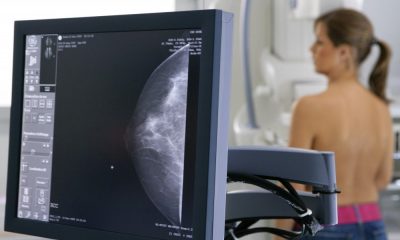Are you suffering from continuous abdominal pains? Do you experience persistent abdominal swelling and pressure, sudden loss of appetite or increased appetite, frequent urination and urinary urgency?
If your answer is yes to all the questions, you should speak to your doctor immediately. These symptoms that often mimic digestive problems, could mean something more serious such as ovarian cancer. Let’s start by understanding where it begins, the risks of developing ovarian cancer, and also actions you can take to prevent.
Ovarian cancer is a type of cancer that begins in the ovaries. The ovaries are small, lumpy, almond-shaped glands that sit just above the fallopian tubes – one ovary on each side of the uterus. Every month during ovulation, either one of the ovaries produces a single mature egg for fertilisation. Although the fifth most common cancer among women, the cause is still unknown to medical professionals. Instead, a woman may be at risk of developing ovarian cancer if she is/has:
• A postmenopausal women over the age of 45
• A non-breast-feeding women or infertile
• Consuming contraceptive pills
• Eating a high-fat, high-protein, high-calorie diet
• A family history of ovarian cancer, or a family history of breast cancer and non-polyposis colon cancer
In the initial stages, early symptoms are not obvious, just like the ordinary digestive symptoms, so they often get ignored. Tumor usually grows to a certain size and is usually found at the pelvic area. Ovarian cancer grows and spreads very fast, so women must pay attention to the prevention and treatment of it.
Women aged 25 and above should start to focus on ovarian maintenance, as it will not only help to maintain beauty and good body shape, but also health and the prevention of ovarian cancer, including a number of gynecological diseases and systemic diseases.
Endocrine disorders are actually combination disorders of three hormones secreted by the ovary, namely estrogen, progesterone, androgen. High estrogen levels cause fibroids and cysts, while low estrogen levels cause body deformation and osteoporosis. High progesterone causes uterine endometriosis, while low progesterone causes difficulty to conceive. High androgen causes female to have masculine features. In short, any hormonal imbalance will cause serious harm to the health and body.
Supplements can help to balance the endocrine, protect the ovary, reduce the risk of breast cancer, and prevent ovarian cancer. Women with gynecological diseases can be treated. Women without gynecological diseases can better nourish the ovary, prevent gynecological diseases, and delay menopause.





















